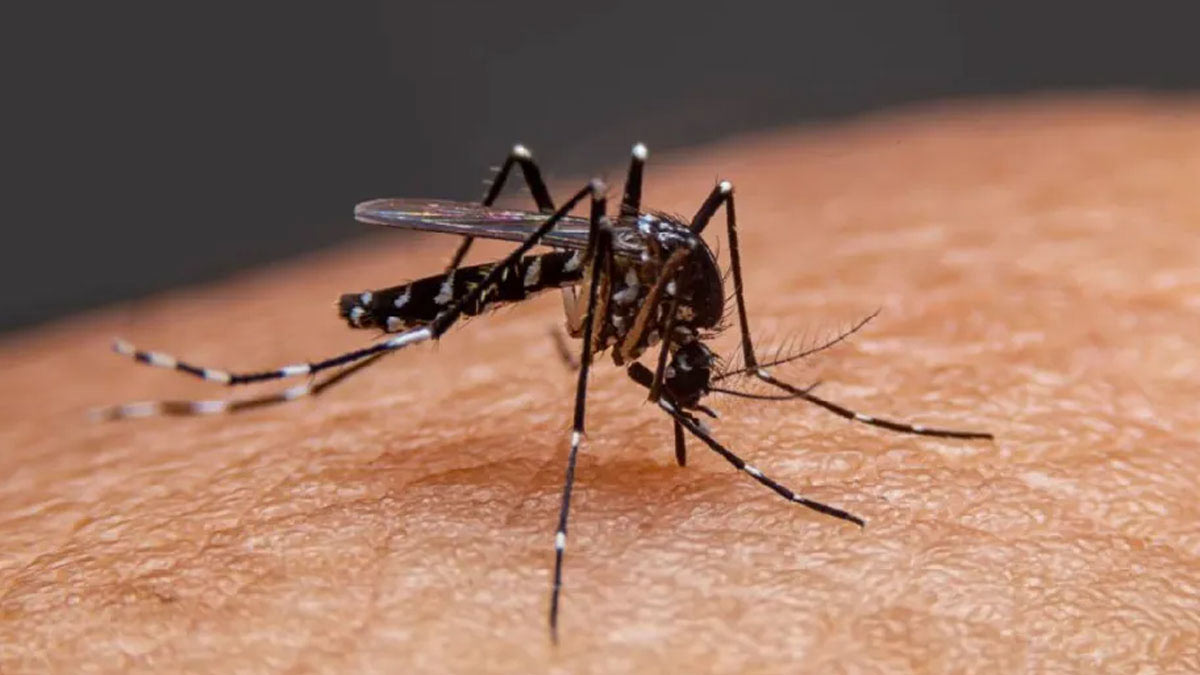As the monsoon season continues, Gurugram has witnessed a significant increase in dengue cases, with the health department reporting around 90 confirmed cases this year. Health officials are urging residents to take necessary precautions to curb the spread of the mosquito-borne disease. The situation, though under control with no fatalities so far, demands increased awareness and proactive steps to prevent further escalation.
Dengue Cases Rise in Key Hotspots
Gurugram health department officials have flagged several areas as dengue hotspots. According to Dr Virender Yadav, the chief medical officer of Gurugram, the most vulnerable regions include Wazirabad, Bhangrola, Nakhrola, Badshahpur, Bhondsi, Bhorakalan, and Garhi. These areas have seen a steady rise in dengue patients, primarily due to poor sanitation and contaminated water. Wazirabad, in particular, has been a focal point, with many residents experiencing viral symptoms suggestive of dengue infection.
The health department has responded swiftly, intensifying efforts to contain the outbreak. Of the 90 reported cases, 51 patients required hospitalization. However, officials have emphasized that there have been no fatalities linked to the disease so far. This offers a glimmer of relief, but the need for immediate and sustained action remains critical.
Government Action to Control the Spread
To address the increasing number of cases, the Gurugram health department has taken several steps to prevent the spread of the dengue virus. A comprehensive testing campaign has been launched, resulting in the collection of over 8,561 samples for testing and conducting 1,746 rapid tests. Health officials also inspected approximately 5,860 houses, where they found dengue larvae in 223 homes.
Also Read: Lucknow Sees Spike In Dengue And Malaria: 61 Dengue, 4 Malaria Cases Reported In A Day
In light of these findings, the authorities issued 13,899 notices to homeowners, government offices, and private establishments under the Municipal Bye-laws Act of 1973. These notices were primarily issued to those found violating the health department’s advisories by failing to eliminate breeding grounds for mosquitoes. These violations included allowing stagnant water to accumulate in containers, flowerpots, and overhead tanks—ideal conditions for mosquito breeding.
Preventive Measures: Fogging, Fish, and Door-to-Door Campaigns
In response to the situation, the Municipal Corporation of Gurugram has been instructed to intensify fogging operations in high-risk areas. Fogging, which helps eliminate adult mosquitoes, is crucial in reducing the immediate risk of dengue transmission. Additionally, authorities have introduced gambusia fish, known for their ability to consume mosquito larvae, into 196 water bodies across affected areas, including Wazirabad, Bhondsi, and Farukhnagar. This natural intervention is aimed at controlling the mosquito population at its source.
Also Read: Ludhiana Sees Early Surge in Swine Flu Cases with 26 Infections Logged, Doctors Sound Alarm
Beyond these measures, the health department is also conducting door-to-door fever surveys to identify potential dengue cases early. Health workers are educating residents about the dangers of stagnant water, advising them to regularly check for water accumulation in everyday items such as flowerpots, coolers, and overhead tanks. These small steps can significantly reduce mosquito breeding in residential areas, a critical step in halting the spread of dengue.
Health Advisories and Recommendations
To protect themselves and their families from dengue, Gurugram residents have been urged to take extra precautions, especially as the rainy season provides the ideal environment for mosquito breeding. Wearing full-sleeved clothing and applying mosquito repellent can help minimize mosquito bites, which transmit the dengue virus. Additionally, using mosquito nets while sleeping, particularly during daytime hours when the Aedes mosquito is most active, is another simple yet effective preventive measure.
Health officials have also stressed the importance of seeking immediate medical attention for anyone displaying flu-like symptoms, such as fever, joint pain, headaches, or skin rashes. Early diagnosis and treatment are crucial in managing dengue cases and preventing complications, especially in vulnerable populations like children, the elderly, and those with compromised immune systems.
Bottomline
With 90 dengue cases reported so far this year, Gurugram’s health officials are taking significant steps to contain the outbreak and prevent further escalation. The combination of fogging, larvicide introduction, and educational campaigns reflects the city’s comprehensive response to the dengue threat. However, the responsibility also falls on residents to follow advisories, eliminate mosquito breeding sites, and seek medical care if symptoms arise. By working together, the city can effectively manage the situation and reduce the impact of dengue.
